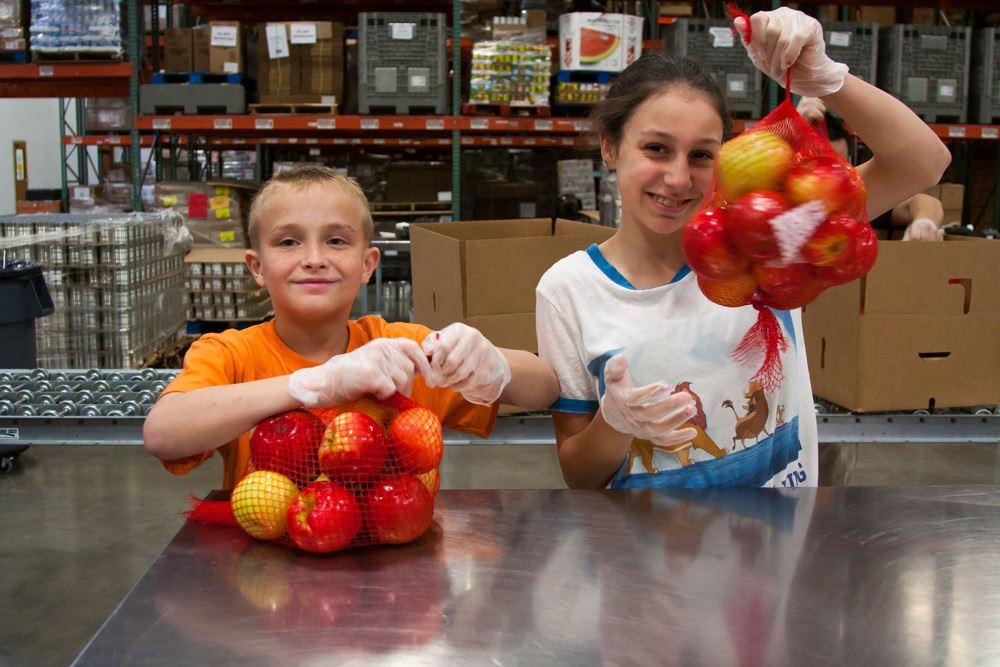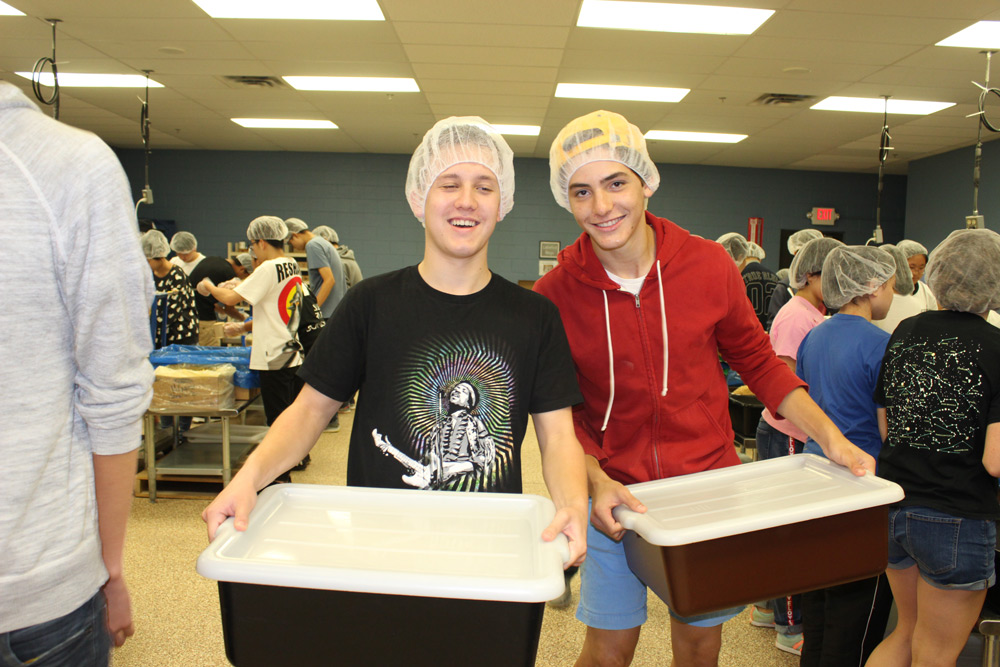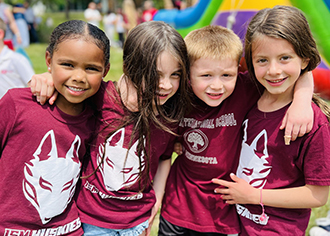Eight Great Ways Kids Benefit From Volunteer Work

Kids who make volunteering part of their lives are confident, empathetic, and make great leaders. Volunteering helps them define their own unique sense of the greater good, which in turn shapes their career and life goals. These are general and accepted truths; it's worth looking more closely at the effects of volunteering on mind, body, and spirit.
1. Volunteering builds empathy
We all value compassion and want our children to nurture this quality in themselves. But it's not always easy for parents to "teach" compassion on a moment-to-moment basis. Volunteering can help. Volunteering helps kids understand how others live1, a skill that can build their sense of empathy. Thinking about others puts their own challenges in perspective. Empathy is much more than a philosophical ideal. It can have a profound impact on the way kids experience their lives.
Kids are more likely to feel empathy2 for people whose experiences they can relate to. The more parents can personalize stories of hardship and tragedy that might otherwise seem like newspaper headlines, the more compassionately kids will respond. Kids may even feel an urgency to put their feelings into action, presenting parents with an opportune moment to help them seek out related volunteer activities.
2. Volunteering makes you happy, and healthy
Studies by Harvard Medical School3 show a connection between volunteering and a sense of personal satisfaction, well being and happiness. Given the connection between mind and body, it's no surprise that volunteering is also linked to better heath and longevity4. Caring for others helps us develop patience and strengthens relationships5, two qualities Dr. Ed Diener and Dr. Martin Seligman say are essentials to happiness. Some of the best relationship-building opportunities come from group volunteer work.
3. Volunteering promotes teamwork and cooperation
There's a reason an increasing number of corporations encourage team-based community service. Group volunteering builds teamwork6 by strengthening work relationships7. When kids participate in community service projects they are aligned under a common goal8, leveling distinctions between age, academic performance and social status. This level playing field is also an ideal environment for developing leadership.
4. Volunteering develops real leadership skills
According to leadership expert Karin Hurt9, by breaking down hierarchies, group volunteering allows individuals to discover their natural leadership abilities. For kids, group volunteering outside of the classroom lessens the impact that age differences, gender assumptions and social hierarchies have on their ability to find their own leadership voice.
5. Volunteering is great for families
For all the same reasons—empathy, happiness, relationship-building and leadership—volunteering is a great shared activity for families. Giving, compassion and commitment are qualities kids learn by example.
6. Volunteering takes less time than you think
Most of us wish we had more time to volunteer. According to Harvard Business Review10, spending time helping others leaves people feeling as if they have more time to spare. Similarly, giving away money can make a person feel more affluent. There's no rule around the right amount of time to spend volunteering. If your efforts are making a difference without putting undue stress on your schedule, that's probably the right amount.
7. Volunteering helps kids learn
According to the University of Minnesota Youth Development Study11, volunteering promotes higher grade point averages and academic confidence. “Service learning” takes this connection a step further to influence not just academic performance but deeper critical thinking, problem-solving skills and the ability to apply what was learned12 to new situations.
Service learning encourages kids to participate in community service activities that are linked directly to academic topics. 2nd graders can develop reading skills by reading aloud to nursing home residents. Middle- or high-school science students might organize, execute, document and present the results of a water conservation project.
8. And yes, volunteering helps kids get into college
Empathy, learning, growth and personal satisfaction are the real rewards of volunteering. This is why volunteering is also on college admission officers’ radar; colleges want to attract good people, not just good candidates. So what kind of volunteering opportunities should kids look for? Start with something they feel personally connected to—they’re more likely to stick with it.
“Concentrate not on being the best candidate, but on being the best person. Pay attention to what is going on in the world around you. If you do those things, not only will the world be a better place because you’re in it, your greatest admissions worry will be choosing which colleges to pick from.”
-Martha Blevins Allman, Wake Forest University Dean of Admissions “What college admissions officers say they want in a candidate13” (Washington Post)
Admissions officers are less impressed by short-term, “flashier” experiences—like a one-time visit to an exotic location—than by long-term commitments to less glamorous causes. Long-term dedication reflects on a student’s ability to succeed in college.
Colleges want to nurture graduates who make an impact on their worlds, not because it proves their ability to fill up their lives with activities. Rather, the mission of any worthy college is to help graduates live more fulfilling lives. Schools know that students who volunteer are starting out with a step up on that, sometimes, elusive journey to lifelong happiness.
Student Life Organization® at the International School of Minnesota
SLO® is a student-led community placing an emphasis on service work that builds global citizenship, teamwork, leadership skills, academic skills and personal fulfillment. SLO® projects are initiated, organized and carried out by students independently, with activities including tutoring, planning sports and social events, organizing community service projects and leading extracurricular activities. To learn more about SLO® and other service and academic programs at the International School of Minnesota call the Admissions Department at (952) 918-1840 or email to admissions@ism-sabis.net.

Footnotes:






